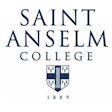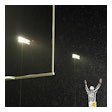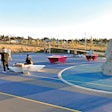Copyright 2017 Dolan Media Newswires
All Rights Reserved
Rhode Island Lawyers Weekly
Plaintiffs living adjacent to the Brown University campus did not lack standing to challenge construction of an athletic facility on land owned by the school, the state Supreme Court has ruled.
The plaintiffs sought a declaration that Brown's construction of an artificial-turf field hockey field was an unlawful use under Providence's zoning ordinances.
"The plaintiffs assert that they have standing to bring suit because they have suffered particularized injury as a result of the field's construction and subsequent use - including physical damage to their home, a decrease in their home's value, and a diminished use and enjoyment of their property," Chief Justice Paul A. Suttell wrote for the unanimous court.
Viewing the facts in the light most favorable to the plaintiffs, the court concluded that their allegations regarding their home "provide measurable economic injuries that they have suffered as a result of Brown's project," Suttell added.
The 17-page decision is Key, et al. v. Brown University, et al., Lawyers Weekly No. 60-087-17. The full text of the ruling can be found here.
Justin T. Shay and Leah L. Miraldi, both of Providence, appeared for the plaintiffs. Defendants Brown University and the city of Providence were represented by Providence attorneys Andrew M. Teitz and Lisa Dinerman.
Athletic complex
The case arose from a project undertaking various renovations to Brown's athletic complex, located at the corner of Hope Street and Lloyd Avenue in Providence's East Side. The university purchased the complex in 1957 and used it for athletics ever since.
The plaintiffs, Stephen L. Key and Melanie D. Mitchell, reside in a 19th century Victorian house located in the Stimson Avenue Historic District abutting the athletic complex.
In 2010, Brown planned renovations to the complex, including the replacement of a practice soccer field with a new field hockey field.
In or about May 2011, the university submitted an amendment to its Institutional Master Plan, or IMP, to the Providence City Plan Commission, seeking approval for the various renovations to the complex.
According to the plaintiffs, the IMP included a sketch depicting the field hockey field in a different location from where it was subsequently constructed, and it failed to indicate that the field would include a grandstand, press box, electronic scoreboard and public-address system.
The IMP was approved by the City Plan Commission on July 22, 2011. There was a 20-day statutory period for an appeal to be filed to the board. The plaintiffs, however, did not appeal the decision.
Construction on the complex reportedly began in May 2012.
The plaintiffs eventually filed a verified complaint in Superior Court. Judge William E. Carnes Jr. awarded the university and the city of Providence summary judgment on count 1 of the plaintiffs' amended complaint.
Carnes found that the plaintiffs lacked standing to seek a declaratory judgment regarding Brown's alleged zoning violations and unlawful use of the field.
Injury in fact
"In the instant controversy, plaintiffs take issue with the hearing justice's ruling that they lacked standing to seek a declaration that Brown University's IMP was deficient under applicable laws and that the field's use is unlawful," Suttell noted.
The plaintiffs, in their amended complaint, asked the Superior Court to declare the IMP deficient under applicable law and the field's use unlawful under the Rhode Island Zoning Enabling Act.
The Supreme Court found that the plaintiffs had standing because they suffered an articulable injury in fact.
The court turned to the issue of whether the plaintiffs were the proper parties to request an adjudication of the particular issue.
"Here, plaintiffs properly asserted relief under the (Uniform Declaratory Judgments Act (UDJA)] because of the particular injury they suffered as abutters to Brown," Suttell stated.
"Indeed, plaintiffs' alleged economic damages stemming from Brown's construction are an injury in fact for standing purposes under the UDJA," he added.
The city and the university contended that only the city solicitor could initiate actions with respect to zoning violations. The plaintiffs emphasized, however, that they merely requested declaratory relief and were not seeking to compel the city to enforce the zoning ordinance under the UDJA.
"(E]ven though the declaratory-judgment power may not be utilized to compel the city to enforce the zoning regulations, '(t]he Superior Court has the power to construe a statute and to declare the rights and obligations of the parties,'" Suttell said.
The university and the city also argued that the plaintiffs lacked standing because they did not exhaust their administrative remedies. But the court found that the plaintiffs' failure to pursue whatever administrative remedies that may have been available to them did not preclude them from seeking declaratory relief under the UDJA.
"Rule 57 of the Superior Court Rules of Civil Procedure provides, in pertinent part, '(t]he existence of another adequate remedy does not preclude a judgment for declaratory relief in cases where it is appropriate,'" Suttell wrote.
The court found that the plaintiffs' ability to challenge the decision of the zoning board had long since passed.
"In the case at bar, the plaintiffs allege that Brown omitted material elements of its construction project from its IMP, thereby depriving the (City Plan Commission] of an opportunity to review 'the true project,'" Suttell noted.
"As a consequence, the plaintiffs further contend, '(n]o public forums were held with respect to the (field] hockey field location, design and amenities prior to the submission or approval of the (IMP], as required,'" he added.
As abutting property owners, the plaintiffs clearly established an injury in fact, the court concluded.
CASE: Key, et al. v. Brown University, et al., Lawyers Weekly No. 60-087-17
COURT: Rhode Island Supreme Court
ISSUE: Did abutting residents have standing to challenge a university's renovation of an athletic field?
DECISION: Yes
Click here for more from this resource.
Copyright © 2017 BridgeTower Media. All Rights Reserved.
Read More of Today's AB Headlines
Subscribe to Our Daily E-Newsletter
Terms and Conditions Privacy Policy































